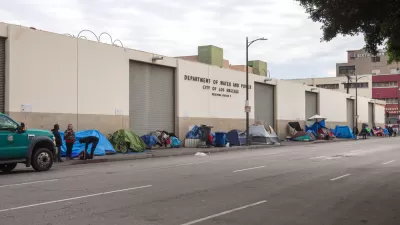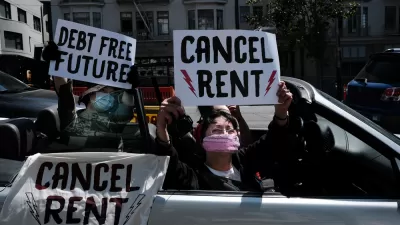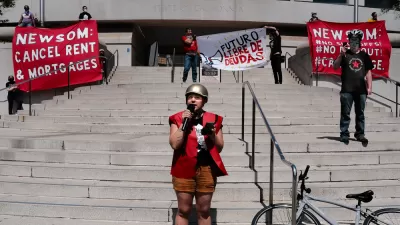The pandemic is highlighting the crucial necessity of community developers’ work. Here’s what the field will need to play its part in the recovery.

One month ago, when I began the first draft of this article, the world was drastically different. Well before we became part of this new reality, I felt an urgency to reflect and speak up about the future to make sure the value of our work doesn’t get lost. Now that urgency has grown.
Throughout my life, I’ve been fortunate to work with practitioners and leaders who have always known that we have a shared responsibility to eradicate inequality. We fight hard for what we know to be right—equitable communities that have good schools, are free of crime and disinvestment, and that are affordable, accessible, healthy, and happy. On most days, our fight already feels like an uphill battle.
Then, history puts a cherry on it. An unprecedented outbreak happens, and our fight is dwarfed by a public health emergency. Overnight, everyone’s priorities change, millions are out of work, and we all try to adjust to life and establish some semblance of a new normal. Yet while we do this the work refuses to wait.
Right now, I, like many of you, don’t need to be CEO as much as I need to be Mom.
But, the fact is that I am both—and I’m not taking any days off. The fight for equity still looms large, and COVID-19 is increasing its relevance. If we treat this crossroads like an opportunity, and not like an Armageddon, perhaps we can make advances in that fight as we make our way through the recovery.
The pandemic has amplified issues that community development organizations have been struggling with regarding the funding environment for our work for ages. To help realign America’s social contract, reimagine communities of opportunity, and endure this COVID-19-affected environment, we need our supporters to:
FULL STORY: Community Development Is Crucial in This Moment

Planetizen Federal Action Tracker
A weekly monitor of how Trump’s orders and actions are impacting planners and planning in America.

Congressman Proposes Bill to Rename DC Metro “Trump Train”
The Make Autorail Great Again Act would withhold federal funding to the system until the Washington Metropolitan Area Transit Authority (WMATA), rebrands as the Washington Metropolitan Authority for Greater Access (WMAGA).

The Simple Legislative Tool Transforming Vacant Downtowns
In California, Michigan and Georgia, an easy win is bringing dollars — and delight — back to city centers.

The States Losing Rural Delivery Rooms at an Alarming Pace
In some states, as few as 9% of rural hospitals still deliver babies. As a result, rising pre-term births, no adequate pre-term care and "harrowing" close calls are a growing reality.

The Small South Asian Republic Going all in on EVs
Thanks to one simple policy change less than five years ago, 65% of new cars in this Himalayan country are now electric.

DC Backpedals on Bike Lane Protection, Swaps Barriers for Paint
Citing aesthetic concerns, the city is removing the concrete barriers and flexposts that once separated Arizona Avenue cyclists from motor vehicles.
Urban Design for Planners 1: Software Tools
This six-course series explores essential urban design concepts using open source software and equips planners with the tools they need to participate fully in the urban design process.
Planning for Universal Design
Learn the tools for implementing Universal Design in planning regulations.
Smith Gee Studio
City of Charlotte
City of Camden Redevelopment Agency
City of Astoria
Transportation Research & Education Center (TREC) at Portland State University
US High Speed Rail Association
City of Camden Redevelopment Agency
Municipality of Princeton (NJ)





























